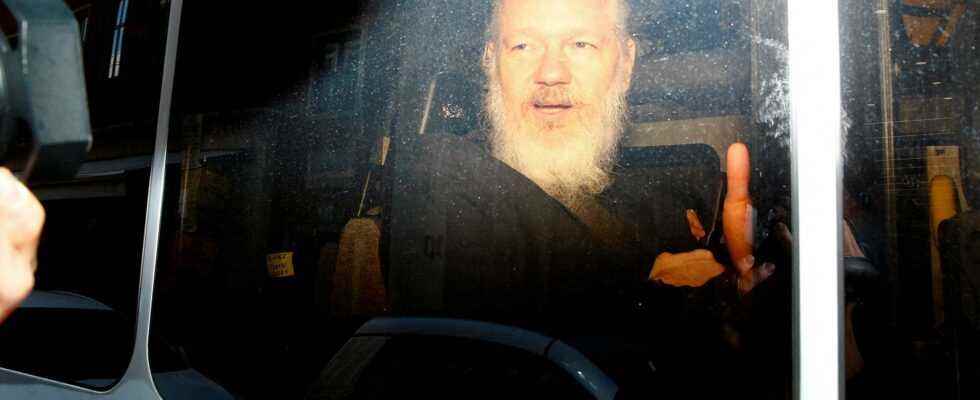British Home Secretary Priti Patel has signed the decree for the extradition of Julian Assange to the United States.
It’s a “dark day” for his supporters but “not the end of the road”: the British government announced on Friday that it had signed the decree for the extradition to the United States of the founder of WikiLeaks, Julian Assange, who will appeal .
The 50-year-old Australian is being prosecuted in the United States, where he faces 175 years in prison for a massive leak of confidential documents.
After a long legal standoff with twists and turns, British justice had formally given the green light on April 20 to his surrender to American justice, but it was up to British Interior Minister Priti Patel to sign an extradition decree. , which she did on Friday.
“We are not at the end of the road. We are going to fight. We are going to use all the means of recourse”, reacted Stella Assange, the wife of the Australian, during a press conference.
Visibly moved, she explained that her husband wanted to “fight” but mentioned a risk of suicide. “If he is extradited to the United States, the conditions in which he will find himself will be oppressive (…) It will push him to commit suicide.”
At his side, lawyer Jennifer Robinson, who defends Julian Assange, confirmed that he would appeal to British justice within 14 days “and if necessary to the European Court of Human Rights”.
175 years in prison incurred
The British Home Office validated the extradition of Julian Assange by considering that it was not “incompatible with his human rights, including his right to a fair trial and freedom of expression”, underlining that in the United States, the Australian would be “treated appropriately, including with regard to his health”.
Press freedom organizations oppose this extradition, fearing that despite the assurances of the American authorities, Julian Assange will be subjected to conditions of solitary confinement in prison which would aggravate a risk of suicide.
For Agnès Callamard, Secretary General of Amnesty International, the extradition of Julian Assange “would send a frightening message to journalists around the world”.
WikiLeaks denounced “a dark day for freedom of the press”.
“I remind you that Assange faces 175 years in prison. For journalistic activity”, hammered the spokesperson for Russian diplomacy, Maria Zakharova.
For his part, the leader of the left opposition in France Jean-Luc Mélenchon affirmed, on the last day of the legislative campaign, that he would naturalize Julian Assange if he were appointed Prime Minister.
“I believe he has submitted the request, (Julian Assange) will be naturalized French and we will ask that he be evacuated to our home,” he said.
He is wanted by the American justice system, which wants to try him for the dissemination, from 2010, of more than 700,000 classified documents on American military and diplomatic activities, in particular in Iraq and Afghanistan.
“The best journalist of our time has been fed to an insatiable mouth. Burn in hell, you bastards”, commented Margarita Simonian, boss of the Russian news channel RT which employed Julian Assange.
Mr Assange has been detained for three years in the high-security Belmarsh prison, near London, where he married Stella Moris in March.
Possible appeal to the European Court of Human Rights
They have two baby boys, conceived when Julian Assange was living in the Ecuadorian Embassy in London. The founder of WikiLeaks spent seven years in this embassy where he had taken refuge in 2012, while he was on bail.
He then feared extradition to the United States, or Sweden where he was the subject of rape proceedings since abandoned.
He was finally arrested by British police in April 2019 and imprisoned.
If leave to appeal is granted, the hearing may not take place until early 2023, Kate Goold, a partner at Bindmans law firm and specialist in extradition cases, told the PA agency.
Even if the appeal is refused, the extradition could be delayed for health reasons if Julian Assange “is too ill, for example, if he is not fit to fly”.
Mr Assange “also has the possibility of appealing the decision to extradite on human rights grounds”, she said.
If he goes to the European Court of Human Rights, the process is likely to take several years.
